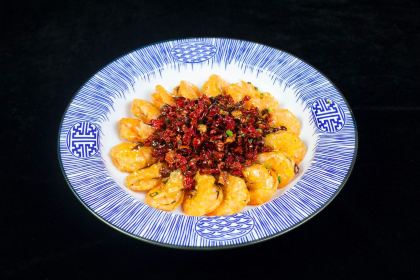巴人堂
3.3/5
111 Reviews
No. 3 of Local Restaurants in Enshi Prefecture
Highlights: Tujia restaurant with a rich ethnic atmosphere and live song and dance performances







More
Currently closed|Open tomorrow at 11:00Show more
+867188289777
Building 8, Tujia Girls' City, 41 Maanshan Road
 清风若溪Enshi Daughter City Ba Ren Tang: Located on Daughter Street of Tujia Daughter City, Qiliping, Enshi City, it is a restaurant with strong Tujia cultural characteristics. The decoration is mainly dark red. It has a rich variety of dishes, highlighting Tujia food culture such as Tujia bowl-breaking wine, corn wine, and bacon. The dishes taste and feel good.
清风若溪Enshi Daughter City Ba Ren Tang: Located on Daughter Street of Tujia Daughter City, Qiliping, Enshi City, it is a restaurant with strong Tujia cultural characteristics. The decoration is mainly dark red. It has a rich variety of dishes, highlighting Tujia food culture such as Tujia bowl-breaking wine, corn wine, and bacon. The dishes taste and feel good.Reviews of 巴人堂
Some reviews may have been translated by Google Translate
3.3/5Average
All (111)
Latest
Photo reviews (40)
Positive reviews (4)
Negative reviews (2)
Enshi Daughter City Ba Ren Tang: Located on Daughter Street of Tujia Daughter City, Qiliping, Enshi City, it is a restaurant with strong Tujia cultural characteristics. The decoration is mainly dark red. It has a rich variety of dishes, highlighting Tujia food culture such as Tujia bowl-breaking wine, corn wine, and bacon. The dishes taste and feel good.
The Ba People Snack City is located in the Daughter City Snack Street. The stalls along the street are all selling special snacks, such as Tofu King, Huang Jiashe Rice, Bamboo Tube Rice, Farmer's Grilled Skewers, Toast Oil Tea Soup, Hand-Pulled Shrimp, and Braised Pig's Trotters. I tried two kinds and they tasted pretty good.
"Baren Hall" is located in the central area of Enshi Daughter City. The lobby is tall and wide, with countless tables and chairs, and can accommodate thousands of people for dining at the same time. It is also an important place to display Tujia culture. There is a large poster introducing Tujia culture at the door, and there are tables and chairs outside the door, which is convenient for passers-by to rest and read the large introduction to understand Enshi and Tujia culture. At 6 o'clock in the evening, two young men in ethnic costumes will beat two big drums at the door of Baren Hall, and the young girls on the second-floor gatehouse will dance happily to welcome guests from all directions. Then there are young girls singing and offering wine to guests from afar. Very good!
We came to Nürzhai with a group tour, and there was also a group meal arrangement at Ba Rentang. The tour guide said that this special meal includes a special bowl-shaking wine, and you can watch a song and dance performance at the same time. After arriving, I found that the store is indeed not small. It only accepts group business, and the environment of the store is also decorated with the flavor of an ancient town. But why is it arranged to sit on Xiaozhudeng? The position is very low and uncomfortable, and it is not easy to stand up after sitting down. This is simply a bad habit of smashing bowls of wine. (There are so many bad habits among Chinese people, I really don’t know when to stop it.) The bowls are sold for 5 yuan each, which is really evil. Breaking it after drinking is not to mention wasteful. The scattered pieces of the bowl can easily injure people. Although the store and tour guide will tell you to keep the mouth of the bowl down, how many people still remember it when everyone is excited to throw it. The ground was still a mess, and the sound was noisy. The performance staff are worthy of praise. Even though the audience is noisy, they are still performing hard. But in such an environment, I really am not in the mood to watch, and would rather hang out outside!
Entering the restaurant, we were shocked to see the broken bowls scattered all over the floor, a clear sign that the waiters were deliberately leaving them unattended. However, after learning that we would have to pay for bowls, none of us showed any interest in smashing them. The ingredients for Heza vary from place to place, and there are many ways to eat it. Some people eat it thin, without any seasoning, often called "light Heza," emphasizing the "drinking" aspect. I drank it like egg drop soup, which perfectly balanced the strong flavors of the other dishes.